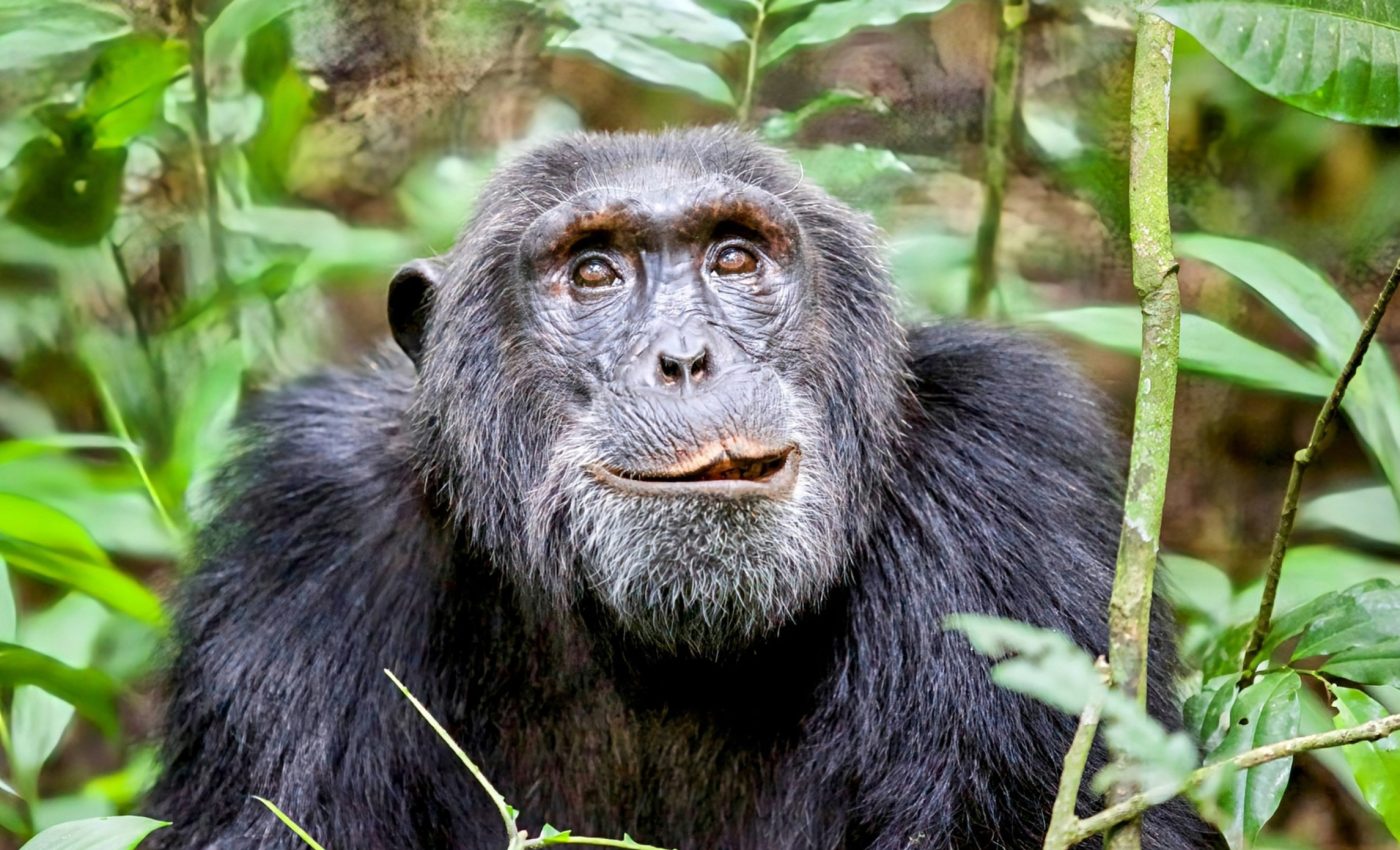
Chimpanzees feel the pressure to perform with an audience
Have you ever found yourself acting differently when you know you’re being watched? Well, it turns out, humans aren’t the only ones who feel the pressure of an audience. Recent research has revealed that chimpanzees also feel the influence of onlookers.
The fact that chimpanzees’ performance changes based on whether they’re being watched or not is utterly fascinating.
“It was very surprising to find that chimpanzees are affected in their task performance by audience members, and by human audience members nonetheless!” said Christen Lin of Kyoto University in Japan.
“One might not expect a chimp to particularly care if another species is watching them perform a task, but the fact that they seem to be affected by human audiences even depending on the difficulty of the task suggests that this relationship is more complex than we would have initially expected.”
Chimpanzees and the audience effect
A group of researchers, including Shinya Yamamoto and Akiho Muramatsu, took the lead on this study. They were curious to find out if the “audience effect,” often ascribed to how we humans manage our reputation, may also exist in non-human primates.
People are often unconsciously attentive to who’s observing them, which may influence their behavior and performance.
But what about chimps? It’s known that chimpanzees also exist within hierarchical societies like ours, but it wasn’t immediately clear if their performance might be swayed by who is watching.
Chimpanzees in the company of humans
“Our study site is special in that chimpanzees frequently interact with and even enjoy the company of humans here, participating almost daily in various touch screen experiments for food rewards,” explained Muramatsu.
This unique interaction between chimps and humans provided the researchers with an opportunity.
Not only were they able to investigate potential similarities in audience-related effects, but they were able to do so in a context where chimps already share unique bonds with humans.
Human observers affect chimpanzees
The experiment conducted by the researchers was meticulously designed to examine how the presence of a human audience affected the chimpanzees’ performance.
The setup involved chimpanzees engaging in tasks of varying complexity on touch screens while their interactions with human observers were carefully monitored.
The tasks ranged from simple, requiring basic selections, to complex sequences that challenged the chimps’ problem-solving abilities.
The presence of different types of human observers – familiar or unfamiliar, and well-dressed or casually attired – added layers of complexity to the experiment. This rigorous approach ensured that the results were not merely anecdotal but grounded in robust scientific inquiry.
Understanding primate behavior
The findings from this study have significant implications for our understanding of primate behavior and cognition. If chimpanzees modify their actions based on the human gaze, they may have the ability to perceive and interpret social cues from another species.
This capability suggests a higher level of cognitive functioning and raises intriguing questions about the evolutionary bridges connecting human and non-human primates. It also prompts a reconsideration of how we view the social dynamics within captive and wild chimpanzee populations.
By recognizing the nuanced ways in which chimpanzees interact with humans, researchers can better tailor enrichment activities and conservation strategies to support their psychological and physical well-being.
Performing for an audience
The researchers made their discovery after analyzing thousands of sessions where chimpanzees completed a touch screen task spanning six years.
In three different number-based tasks, chimpanzees performed better on the most difficult task when the number of experimenters observing them increased.
For the simplest task, however, the chimps performed worse when being watched by more experimenters or other familiar people.
What’s the reason behind these audience-related effects? It’s not clear-cut, even for humans. The researchers theorize that further study in non-human apes might provide more insight into how this trait evolved and its purpose.
Chimpanzees and human audiences
“Our findings suggest that how much humans care about witnesses and audience members may not be quite so specific to our species,” noted Yamamoto.
“These characteristics are a core part of how our societies are largely based on reputation. If chimpanzees also pay special attention towards audience members while they perform their tasks, it stands to reason that these audience-based characteristics could have evolved before reputation-based societies emerged in our great ape lineage.”
The study is published in the journal iScience.
—–
Like what you read? Subscribe to our newsletter for engaging articles, exclusive content, and the latest updates.
Check us out on EarthSnap, a free app brought to you by Eric Ralls and Earth.com.
—–













